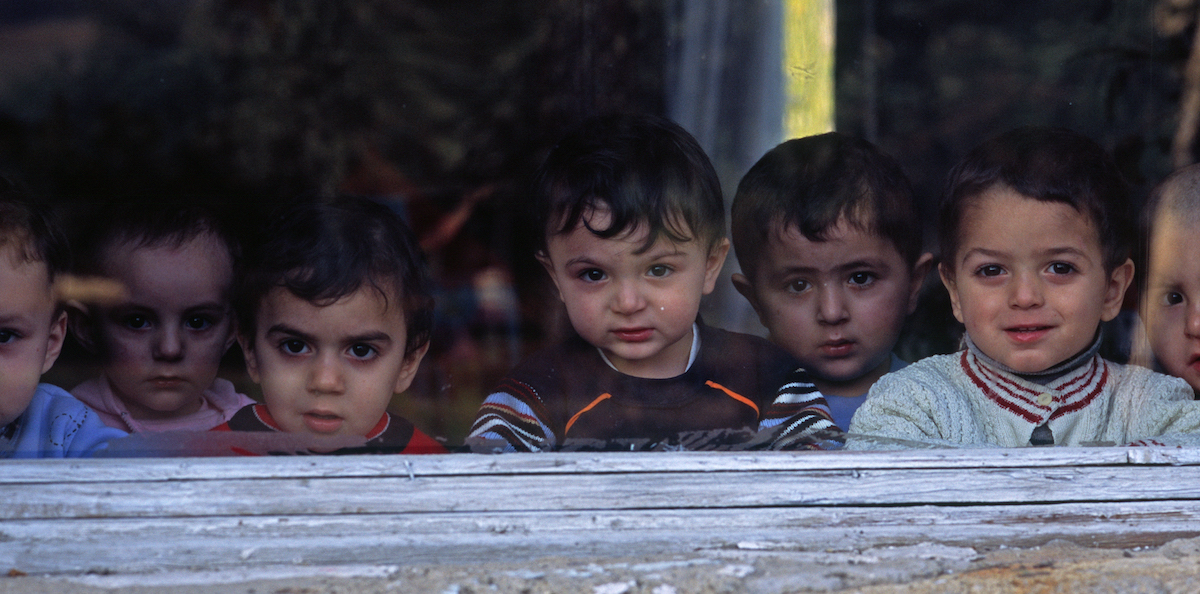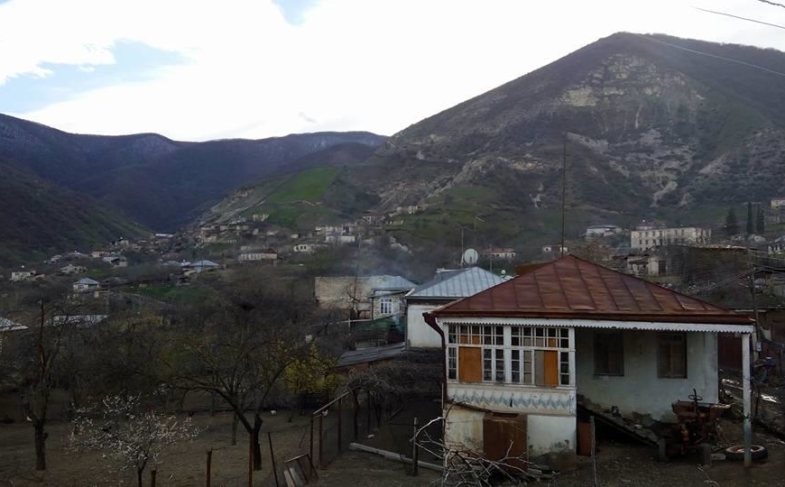3 years since the Karabakh April War: What did it change?
Every year, the South Caucasus remembers the events of the April 2016 War in Karabakh.
It was the largest and bloodiest flare up on the line of contact since the beginning of the truce in 1994. Official figures put the death toll at more than 200 on each side over the course of the 2-5 April conflict.
Three years have passed. What did the four-day war change? We spoke to experts in Yerevan and Baku to find out.

Azerbaijan
JAMnews political observer Shahin Rzayev:
“I will name five main consequences of the 2016 April War.
“First, the myth about the army of the unrecognized Nagorno-Karabakh Republic as ‘the most powerful army in the South Caucasus’ has been dispelled. Since then, threats from Armenian nationalists that ‘we will soon drink tea in Baku’ have almost ceased to be voiced.
“Secondly, changes have occurred in Armenia which led to the fall of the government of Serzh Sargsyan in 2018.
• Armenia – the year of the Velvet Revolution
“Thirdly, the OSCE Minsk Group, which mediates in the negotiations on the Karabakh conflict, has stopped bringing up ‘the military results of the conflict’ and the results of ‘voting by bullets’ (the expression used by one of the former co-chairs of the Minsk Group, Vladimir Kazimirov). The mediators saw that military results could be changed, but they are not interested in a ‘second round of voting by bullets,’ that is, the beginning of a new war.
“Fourthly, there has been a rise of patriotic sentiment among the Azerbaijani public, and the pessimistic sentiments that are characteristic of a losing side have noticeably decreased. At the same time, the revanchist appeals have intensified.
“And the fifth: The ‘military results’ strengthened the position of the Azerbaijani side at the talks. It doesn’t matter how many square kilometres were liberated, be it 20 as they say in Azerbaijan or 8 as they say in Armenia. In April 2016, important strategic points came under the control of the Azerbaijani army. For the first time since 1992, Armenia was forced to accept refugees – hundreds of people from the destroyed Talysh village in the north of Karabakh.”
Political observer Ilqar Valizade:
“For more than 20 years, the Armenian side has spoken of the ‘status quo’ in the Karabakh conflict zone which cannot be violated, as it ensures the security of the population of Karabakh.
“The base constant was the line of demarcation, drawn after the conclusion of the armistice in 1994, where powerful defensive fortifications were erected. According to the Armenian side, this is the exact line [ed. Armenia controls all of Karabakh and seven adjacent regions of Azerbaijan] that protects Karabakh from attack by Azerbaijan and allows it to build an effective defense.
“After the Azerbaijani troops managed to break this line in many places during the April War, and the defense of the Armenian side failed, the question of transferring at least part of these seven occupied regions to Azerbaijan became again relevant.
“The most important thing is that, despite the fact that the battles were very fierce, massive losses, in particular among civilians, were avoided. Today, everyone understands that the mass killing of civilians can unleash a big war, which both parties to the conflict are trying to avoid.
“The negotiation process, which began after the 2016 war, inspired certain hopes. Then, due to various circumstances, these hopes were not fulfilled. But now we are witnessing the resumption of the negotiations that were initiated in the spring of 2016, although already in different conditions.
• Why is the first official meeting of the Armenian PM and Azerbaijani president so important?
“Given the changes that have occurred over these three years, a new negotiating agenda is needed. And the fact that at the last meeting in Vienna the parties agreed to solve humanitarian issues, this is very significant. They want to put the interests of societies, including residents of the conflict zone, at the forefront, and this is very important.
“However, so far it is only possible to guess how this will occur. I think we will soon be able to talk about the exchange of hostages on the principle of ‘all for all’. If this happens, then it will be possible to talk about the intention declared in March by both parties to ‘prepare the nations for peace’. It will be a gesture of goodwill that will show that the parties are ready to change the situation.”
• On the joint initiative to ‘prepare the nations of Azerbaijan and Armenia’ for peace
Armenia
Leonid Nersisyan, military observer:
“The April 2016 war took place because of local reasons but also larger political ones – one of them was a deepening crisis at the time in relations between Turkey and Russia.
“In addition, at the time in Baku they believed that strength was on their side due to investments in the army from 2008-2014 when they purchased weapons for several billion dollars.
“These two factors led to an attempt to try to see what kind of blow the Armenian defenses could sustain.
“But the Azerbaijani side did not achieve any success in those four days. It was only the first day that was successful, when the offensive was relatively unexpected. But on the other days, the Armenian side gradually recovered its lost positions.
“April 2016 was also one of the most brutal attacks on the ‘positions’ of then-Armenian President Serzh Sargsyan. At the time, embezzlement in the army was revealed.
“Much was made obvious after that war.
“Armenia was convinced that the negotiation process and talks about concessions do not guarantee peace. And this strongly and negatively affected the negotiating position of Armenia.
“It is logical that after those events the Armenian side would no longer talk about any concessions – neither territorial nor otherwise. In general, the Armenian side was satisfied with the status quo. Azerbaijan is the losing party in the conflict – even if it is looking for ways to resolve the conflict.”
Yervand Bozoyan, political scientist:
“In 2016, Azerbaijan organized a military provocation, which had several goals.
“Azerbaijan’s foreign policy approach was not very positive. The US congress had discussed the possibility of imposing serious sanctions against high-ranking Azerbaijani officials should the country not make concessions on the issue of political prisoners.
“Then, Ilham Aliyev retreated [ed. 150 people received amnesty, including 12 political prisoners].
“In Azerbaijan, it was perceived as a weakness on the part of the president, which he had to somehow compensate for. He needed at least a small victory in the eyes of society.
“As a result, the army took 800 hectares of territory – but in the diplomatic sense they suffered a serious setback. The Armenian side managed to bring to the fore the fact that the hostilities were begun by the Azerbaijani side.
“Over the past 20 years, there has been almost no communication between Armenians and Azerbaijanis even at the level of ordinary citizens or journalists. As a result, myths and stereotypes are deeply rooted in people’s minds. And that war struck a very serious blow and threw societies for a lurch in both countries.
“In order for something to change, we need discussions, a dialogue at the everyday level of people of different social classes. If this does not happen, I don’t think that political negotiations on concessions will lead to any results.”
During the hostilities of April 2016, JAMnews provided rolling coverage from both sides, trying to give a comprehensive and maximally objective picture. Since then, JAMnews has become a permanent platform for analysis, discussions and forecasts by experts and politicians from Armenia and Azerbaijan. Below are links to some of the stories and comments:
• Fighting in Karabakh – who started it? Baku, Yerevan, Stepanakert and Moscow weigh in
• Video report from an Azerbaijani frontline village
• Report from Armenia: a little more – and a full-scale war will begin
• What will Georgia do if a war begins in Karabakh?
• International negotiators are trying to stop the conflict in Karabakh
• How 12-year-old Vaginak Grigorian was buried in Karabakh the day before the truce
• Karabakh diary of an Azerbaijani journalist: 2-12 April 2016
• Russia and the Minsk Group: mediators in the Karabakh conflict are simultaneously everywhere
• Uniting Baku and Yerevan in sadness, anger and self-righteousness
• April 2016 – a failed blitzkrieg of Baku or the “secret hand” of Moscow? View from Yerevan
• How do you discuss the Karabakh conflict in your kitchen?
• New status quo? Baku and Yerevan talk about “new”, more rigid model of behavior
• Pyrrhic victory of Azerbaijan – view from Baku on the “April war”



















